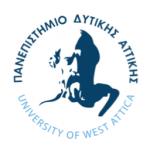2018 |
Vassilakaki, Evgenia; Kyriaki-Manessi, Daphne; Giannakopoulos, Georgios An Evaluation Framework for a Digital Cultural Heritage Project Conference 10th Qualitative and Quantitative Methods in Libraries, 2018. Abstract | Links | BibTeX | Tags: cultural heritage, evaluation, framework, projects @conference{Vassilakaki2018,The abundance of online applications and platforms that promise to efficiently and effectively meet the demands of their customers have introduced the need of their evaluation. Along this line, organizations allocate multimillion funds for projects securing to assist and ameliorate the way that the wider public experiences the web and uses online information. In the context of Digital Cultural Heritage studies (Locatelli et al. 2012) more and more projects aim to develop applications and platforms that would change visitor's experience. This paper aims to provide a methodological framework for evaluating online applications addressing the needs of museum and archaeological venue visitors. In particular, the steps undertaken for evaluating the different aspects of a project (i.e. cultural impact, technological impact, social impact) will be outlined with specific examples and evaluation scales. In the relevant literature, there is a lot of discussion about the use of qualitative (i.e. interview, focus group) (Prekop 2002) versus quantitative methods (i.e. questionnaire, log files) (Katsirikou and Skiadas 2011), mixed methods research and triangulation (Kwon 2008). Moreover, the use of technology acceptance model is often proposed (Teo 2014; Jaradat 2012). However, these approaches address only part of the multi-dimension elements of a digital cultural heritage project (i.e. only technology, only user experience). This paper contributes by providing a detailed and hands-on methodology that could be used in evaluating Digital Cultural Heritage projects. |
Indicative Publications
2018 |
An Evaluation Framework for a Digital Cultural Heritage Project Conference 10th Qualitative and Quantitative Methods in Libraries, 2018. |

